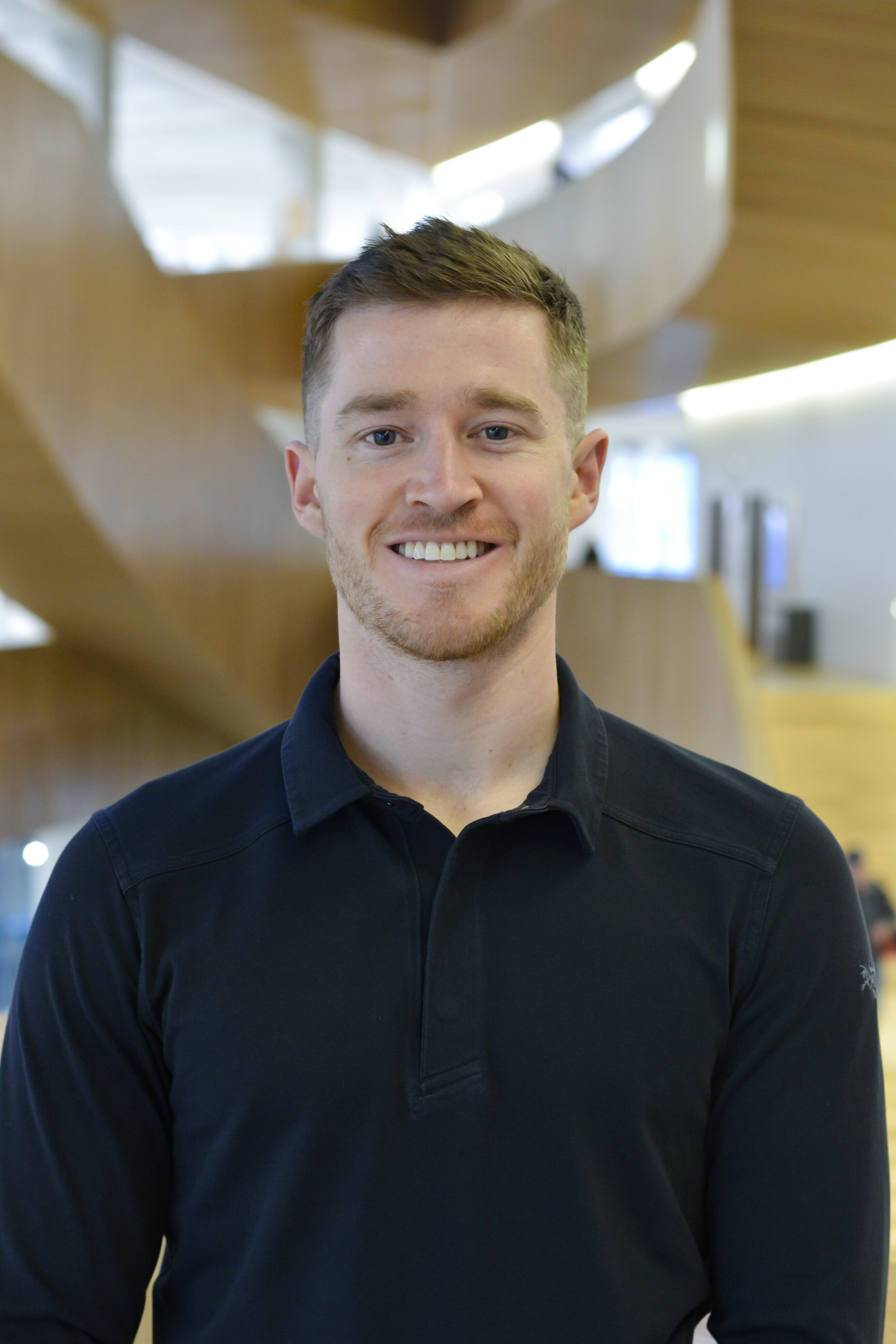Convocation Spotlight: Connor Young
10 June 2024
 Connor Young is graduating with a master of science in physical therapy offered by the Faculty of Rehabilitation Medicine.
Connor Young is graduating with a master of science in physical therapy offered by the Faculty of Rehabilitation Medicine.
When he was 24, Connor Young was seriously injured in a climbing accident. Throughout the years he spent rehabilitating from that accident, he came to realize the power that physiotherapy has to change people’s lives. He knew he wanted to be a part of that process, giving back where he had received so much, so he embarked on a master of science in physical therapy at the University of Alberta.
Today he looks back on the challenges he faced during his degree and the ways in which those challenges prepared him to serve his future clients.
What are you most proud of from your time in the program?
I am most proud of my performance during my placement at Corbett Hall, where I worked hard with patients dealing with chronic neurological conditions and saw real changes in their function over the six weeks we had together. It was during this placement that I found the confidence that I could do this job.
What was the biggest challenge you faced?
I had an ACL reconstruction that did not go well right before the start of the program. I had to have revision surgery, which also had poor results, in the middle of the program. Managing that rehab on top of school was hard, particularly emotionally as I had to adjust to a new reality about the functional capacity of my leg. This was far and away the biggest challenge I faced, but also taught me a lot about myself and how to navigate challenging conversations with patients who are experiencing something similar.
How did you stay motivated and who helped you keep going when things got tough?
I stayed motivated because I knew that this career was the perfect fit for me. Since I started the process of pursuing physiotherapy as a career, I have never wavered in my drive. When things got tough, I leaned heavily on my friends in the program. I never could have made it through some of those tougher times without their support. I also had amazing support from my family, my partner, my professors and clinical instructors.
What advice would you give to a student thinking of entering the MScOT program?
I would advise them to keep their eyes on the end goal. We all enter this program because we have a passion for helping others through their hard times. You will face many challenges — some expected, some not — throughout this program. If your motivation is being drawn from the right places, you will find a way through all of it.
What have you learned about yourself, and how will you use this going forward?
I have learned that the emotional part of healing from injury is just as important as, if not more important than, the physical. I try to picture myself on the other side of the table in every patient interaction I have and really think about the words coming out of my mouth. What does this patient need to hear right now based on where they are at with the acceptance of their injury? Reading the room, timing and delivery of hard conversations is such a huge part of this job and it has to come from a place of true empathy.
What comes next for you in your career/academic journey?
I love the problem-solving aspect of private physiotherapy, but have also enjoyed working with complex injuries in a publicly funded specialty service in Calgary. For the past five months, I have had a balance between these two realms in my career. I have really enjoyed the challenge of finding my stride in these two worlds and plan to continue this balance for the foreseeable future. I am looking forward to furthering my expertise in both fields through continuing education.